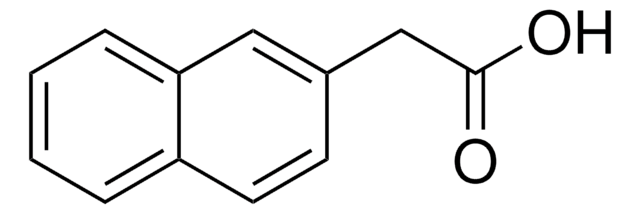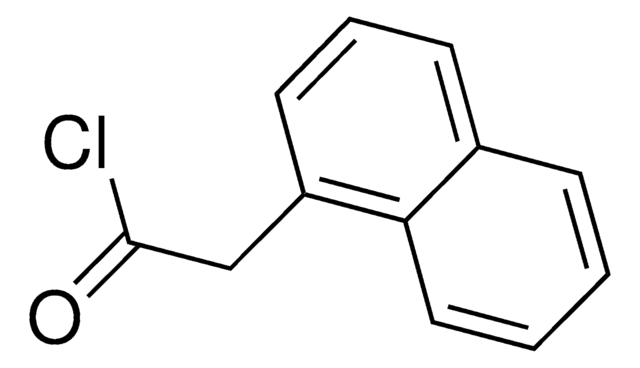317918
1-Naphthaleneacetic acid
technical grade
Synonym(s):
α-Naphthaleneacetic acid, 1-Naphthylacetic acid, NAA
About This Item
Recommended Products
grade
technical grade
Assay
≥90.0% (GC)
form
lumps
powder
SMILES string
OC(=O)Cc1cccc2ccccc12
InChI
1S/C12H10O2/c13-12(14)8-10-6-3-5-9-4-1-2-7-11(9)10/h1-7H,8H2,(H,13,14)
InChI key
PRPINYUDVPFIRX-UHFFFAOYSA-N
Gene Information
human ... CCKAR(886) , CCKBR(887)
Looking for similar products? Visit Product Comparison Guide
Related Categories
Signal Word
Danger
Hazard Statements
Precautionary Statements
Hazard Classifications
Acute Tox. 4 Oral - Aquatic Chronic 3 - Eye Dam. 1 - Skin Irrit. 2 - STOT SE 3
Target Organs
Respiratory system
Storage Class Code
11 - Combustible Solids
WGK
WGK 3
Flash Point(F)
Not applicable
Flash Point(C)
Not applicable
Personal Protective Equipment
Certificates of Analysis (COA)
Search for Certificates of Analysis (COA) by entering the products Lot/Batch Number. Lot and Batch Numbers can be found on a product’s label following the words ‘Lot’ or ‘Batch’.
Already Own This Product?
Find documentation for the products that you have recently purchased in the Document Library.
Customers Also Viewed
Our team of scientists has experience in all areas of research including Life Science, Material Science, Chemical Synthesis, Chromatography, Analytical and many others.
Contact Technical Service







